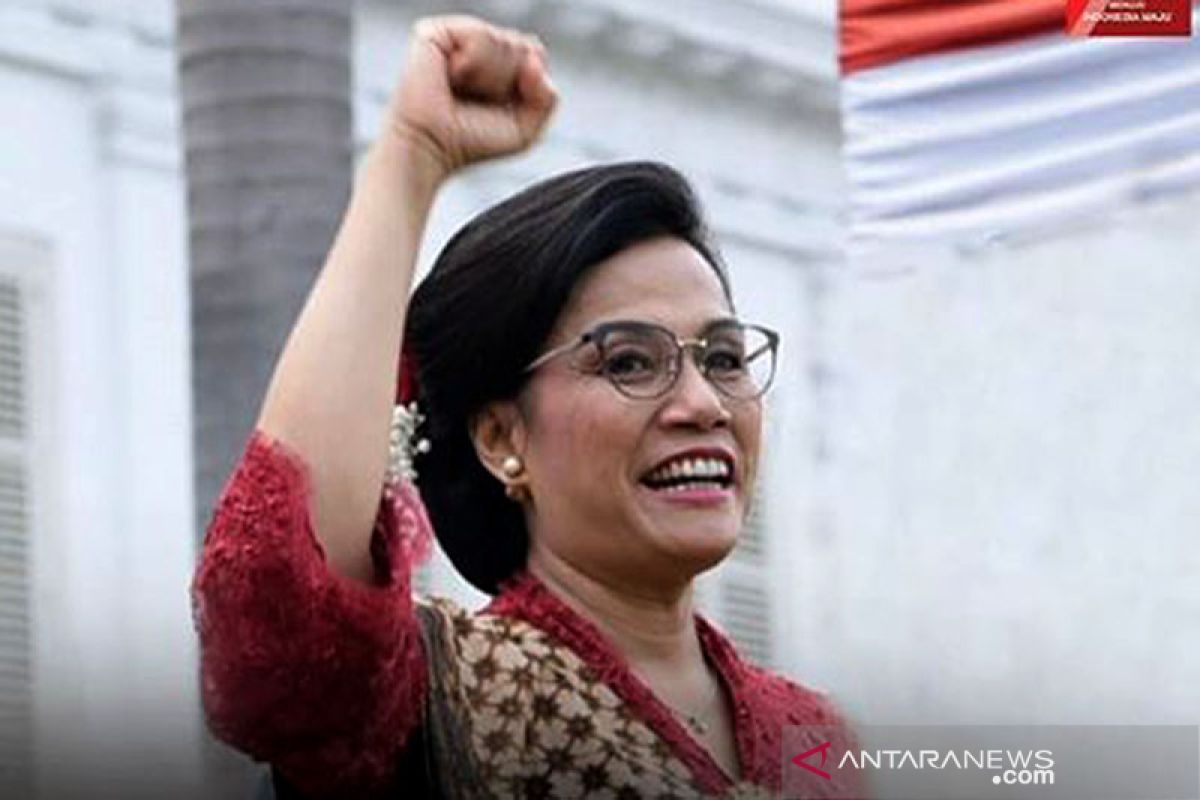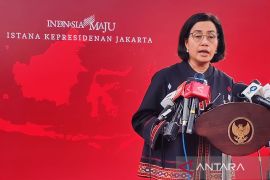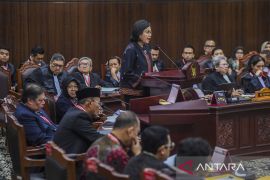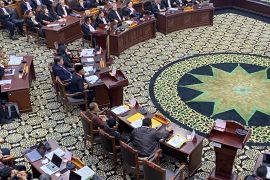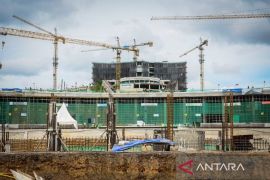"The cost incurred in handling the COVID-19 pandemic, identified as Rp677.2 trillion, will be contained in the revision of the Presidential Regulation (Perpres)," the minister stated in Jakarta on Wednesday.
Indrawati delivered the statement after attending a limited videoconferencing meeting themed, "Establishment of the National Economic Recovery Program (PEN) and Changes to the 2020 State Budget" led by President Joko Widodo.
The government has issued Government Regulation in Lieu of Law (Perppu) No. 1 of 2020 on the state financial policy and financial system stability for handling the COVID-19 pandemic and/or in the context of threats that harm national economy and/or financial system stability and has been ratified to become Law No. 1 of 2020.
Law No. 1 of 2020 was then reduced to several laws and regulations, such as Presidential Regulation (Perpres) No. 54 of 2020 containing the posture of the State Budget after COVID-19.
"This cabinet meeting will stipulate the revision of Perpres No. 54 of 2020 that will accommodate the National Economic Recovery (PEN) Program since the initial Perpres is more focused on the crisis in the health sector and social assistance to the public, and the third part on the economy and finance and its recovery will be contained in the revision of this regulation," Indrawati stated.
Perpres No. 54 of 2020 was then passed down by Government Regulation (PP) No. 23 of 2020 concerning PEN that establishes four modalities as the APBN instruments to support national economic recovery: State Capital Participation (PMN), placement of government funds in banks, government investment, guarantees, and state spending aimed at maintaining and restoring the national economy as a result of the COVID-19 pandemic.
"The Rp677.2 trillion consists firstly Rp87.55 trillion in the health sector, including spending on handling COVID-19, medical personnel, death benefits, contribution assistance for national health insurance, task force financing, and tax incentives in the health sector," the minister explained.
Secondly, it is for social protection in the form of the Family Hope Program (PKH), food staples, social assistance for Jabodetabek (Greater Jakarta), non-Jabodetabek social assistance, Pre-Employment Cards, electricity discounts extended to six months, and logistics for food and direct cash assistance (BLT) of village funds totaling Rp203.9 trillion.
Third, support for MSMEs in the form of interest subsidies, placement of funds for restructuring and supporting working capital for MSMEs, with loans of up to Rp10 billion, and spending on guarantees for emergency working capital loans.
Fourth, incentives for the business world to ensure survival through taxation relaxation and other stimulus reaching Rp120.61 trillion.
"Fifth, financing and corporation include state capital injections (PMN), reasoning for emergency working capital loans for labor-intensive non-MSMEs, as well as spending for risk premiums for working capital loans for labor-intensive industries whose loans are Rp10 billion-Rp1 trillion," Indrawati stated.
Financing includes guarantees for several SOEs and a bailout fund of Rp44.57 trillion. Agencies that fall in the category of corporate financing include SOEs, labor-intensive corporations above Rp10 billion-Rp1 trillion, and for non-labor intensive ones.
Sixth, support for sectoral as well as ministries/institutions in addition to regional governments that reached Rp97.11 trillion.
"Hence, the total costs for handling COVID-19 reaches Rp677.2 trillion," the minister noted.
According to Indrawati, Perpres No. 54 of 2020 on the APBN posture was revised following consultation within the government through cabinet meetings involving the coordinating minister for economic affairs, coordinating minister for maritime affairs and investment, and various institutions, including Bank Indonesia (BI), Financial Services Authority (OJK), and the Deposit Insurance Corporation (LPS), as well as consultations with the House of Representatives (DPR). Related news: COVID-19 economic stimulus must support low-carbon development
Related news: Government plans tourism stimulus in third quarter of 2020
Reporter: Desca Lidya, Azis Kurmala
Editor: Rahmad Nasution
Copyright © ANTARA 2020
